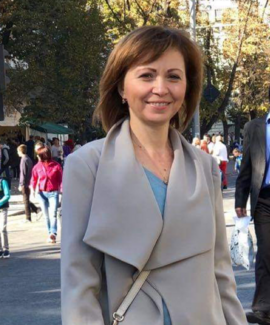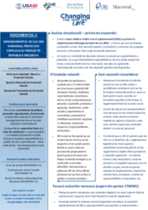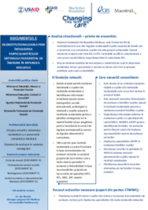
Background Information
Degrees in nursing, psychology, and speech pathology, PhD in Psychology.
From 2007 to 2010, I was a case manager myself, working directly with families. I was involved in assessing children and families, helped prepare children and families for reintegration, supported and monitored families after reintegration, prevented the separation of children from their families. I was also involved in preparation and support process for foster families for the children and monitored the quality of care they were providing.
Membership & Associations
Our Interview With Practitioner
Being open to new knowledge, as well as always applying knowledge and skills in practice.
First meeting/visit to the family is very important; it is the moment of building the connection, the trust between the beneficiary and the specialist. It is important to have time and patience for it. If in the family exist at least one person you can rely on – the reintegration has the chance to be successful.
I often use the tool The Line of Life - a tool that helps me understand the important moments in human life, its strengths and weaknesses, details about personal life. It is a process of reflection of the interviewee on his own life and actions; he himself can realize that he has resources or someone to rely on (or often we deduce this together) and that he can restart/change his life. Also, this time (a few hours) helps the specialists to understand the client. This might be the first time when someone listens to a person in a difficult situation and this is important for everyone. After this exercise, usually, the working process goes much easier.
I believe that one day the residential institutions for children in Moldova will be closed and the families will be able to take care of their children and the local authorities will have the knowledge and resources to help the families in vulnerable situations. I love to see smiles on children’s faces. I like to see people change and their situations improve and I am happy when they start to plan and to dream because this means they are more certain about their future.
Building a local family support group, developing the communication skills of the specialist with the client and vice versa.
Where They Operate
Key Areas of Work
Languages Spoken
Practitioner Resources
A fost efectuată atât analiza ghidurilor naționale cât și internaționale, a proceselor standard de operare, a instrumentelor și a materialelor pentru Managementul de caz (MC) pentru a identifica punctele forte și lacunele.
A fost efectuată o evaluare cuprinzătoare a copiilor și adolescenților care trăiesc în îngrijire rezidențială identificând că există un mecanism complex de evaluare, axat pe oferirea unei vederi de 360° asupra nevoilor și interesului superior al copilului.


